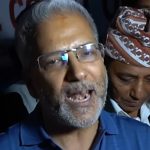
In the past five years, more than 668,943 Nepali students have obtained a No Objection Certificate (NOC) to study abroad, according to the Ministry of Education, Science, and Technology.
However, experts say the real number is likely higher, especially in the case of students going to India, where many travel for studies without requiring an NOC.
Nepali students have gone to a wide range of countries for education—from Zambia in Africa to Bosnia and Herzegovina in Europe.
Which Countries Do Most Students Go To?
Data shows that the majority of students are choosing to study in developed countries. The top 10 destinations for Nepali students are:
- Australia – 205,398 students
- Japan – 123,594
- United Kingdom – 88,343
- Canada – 76,663
- United States – 40,346
- South Korea – 31,973
- India – 24,963
- United Arab Emirates – 12,544
- New Zealand – 10,504
- France – over 7,000
Additionally, more than 5,000 students have taken NOC for Germany, Finland, and Denmark. Meanwhile, only two students each applied for NOC to study in Kazakhstan and Zambia.
The ministry states that it does not have exact data on how many Nepali students are studying in India without obtaining an NOC. However, around 50% of students going to India for education reportedly do so without the certificate.
Why Are More Students Going Abroad?
Officials from the Ministry of Education believe both internal and external factors are driving the rise in students going abroad.
Ministry spokesperson Shivakumar Sapkota says increased access to the outside world, better quality education, and job opportunities are among the major reasons.
In 2077 BS (2020), 40,477 students took NOC, which more than doubled by 2081 BS (2024), when 92,648 students received it.
“There is more self-confidence among youth now. They believe they can go anywhere in the world to study or work without problems,” Sapkota said.
He also mentioned growing ambition and social pressure as other key reasons. “When young people see others doing it, they feel, ‘Why can’t I?’”
Sapkota also acknowledged that Nepal’s educational policies are partially responsible for students preferring to study abroad.
He emphasized the need for a flexible education system where students can easily study while working, similar to systems in many foreign countries.
Many students go to countries with open societies and greater job opportunities, drawn by the liberal immigration and work policies of those countries.
The ministry estimates that over 1 billion rupees flow out of Nepal each year through students studying abroad.
What Do Experts Say?
Some education experts argue that a significant number of students who take NOC go abroad primarily to work, not to study.
“Many go abroad under the label of education, but the real motive is to earn money. Our political leaders have also failed to create enough jobs here,” said educationist Vidyanath Koirala.
A former education secretary (who preferred to remain unnamed) classified Nepali students going abroad into four categories:
- Those on scholarships
- Those self-financing their education
- Those studying while working
- Those using education as a reason to go abroad but mainly going for work
Some students use smaller countries in Africa or Europe as a transit point to move to more desirable nations.
Koirala added that Nepal lacks policies to retain students, while foreign countries have strong pull factors such as easier living conditions and career opportunities.
“Our universities didn’t provide the flexibility students needed. Many couldn’t study the courses they wanted, or the courses didn’t help them professionally,” he said.
Countries that offer jobs, credit facilities, and good social systems make it easier for students to settle permanently, he noted.
However, some experts are hopeful that as countries like China and India create more opportunities, and if Nepal improves its own, some students may choose to return in the future.
NOC Suspended for South Korea
Recently, the government suspended issuing NOCs for South Korea, especially for those going to study the Korean language.
This decision came after the Nepali Embassy in Seoul reported that students were facing difficulties. In response, the Ministry of Education paused NOCs for those applying for language studies in Korea.
A task force has now been formed to study how to better regulate and manage the NOC process. Based on its findings, future decisions will be made.
For now, students planning to go to South Korea on D-2 or D-4 visas for undergraduate language programs will not be issued NOCs. The ministry publicly announced this decision on Baisakh 30 (May 12, 2025) following a meeting on Baisakh 28.











